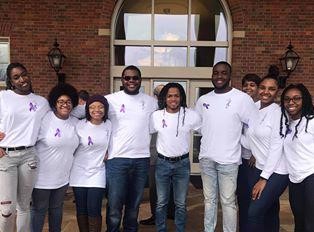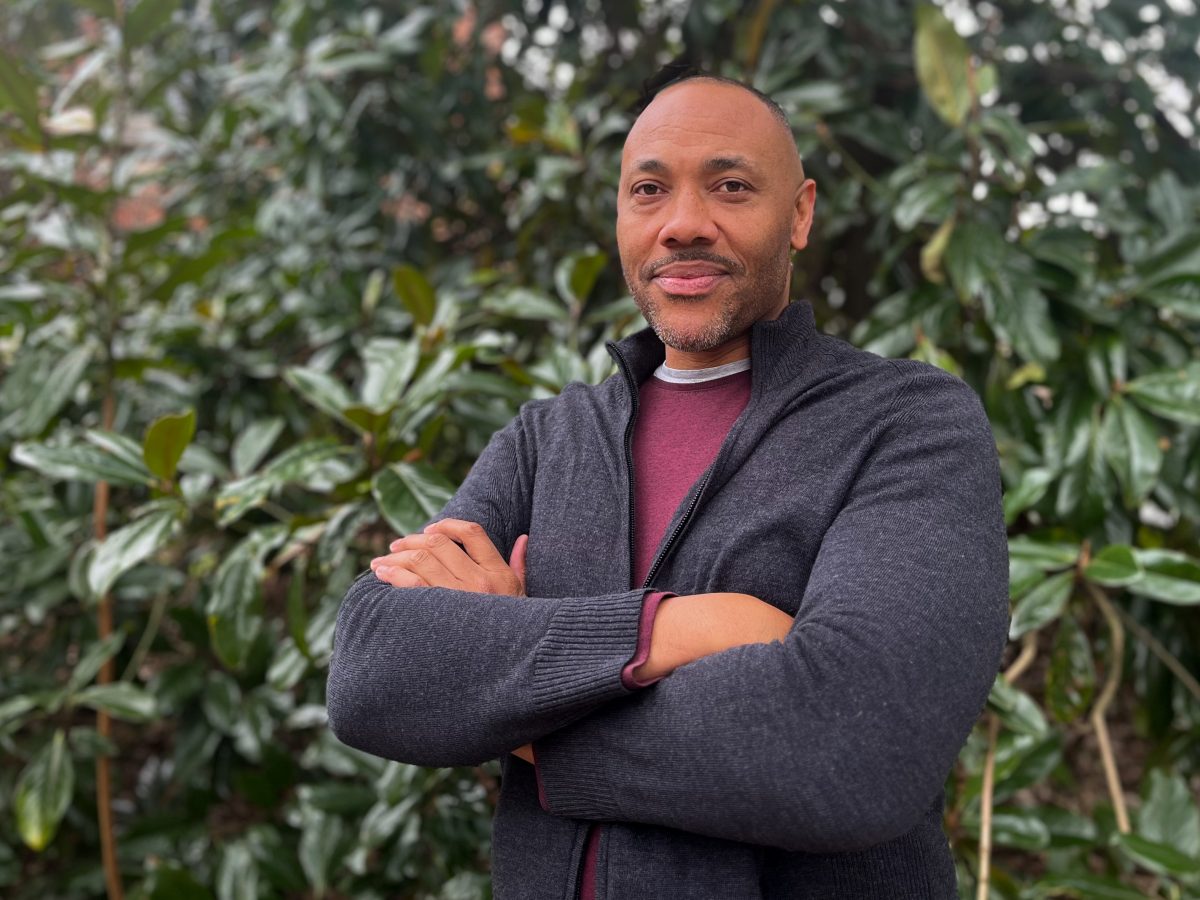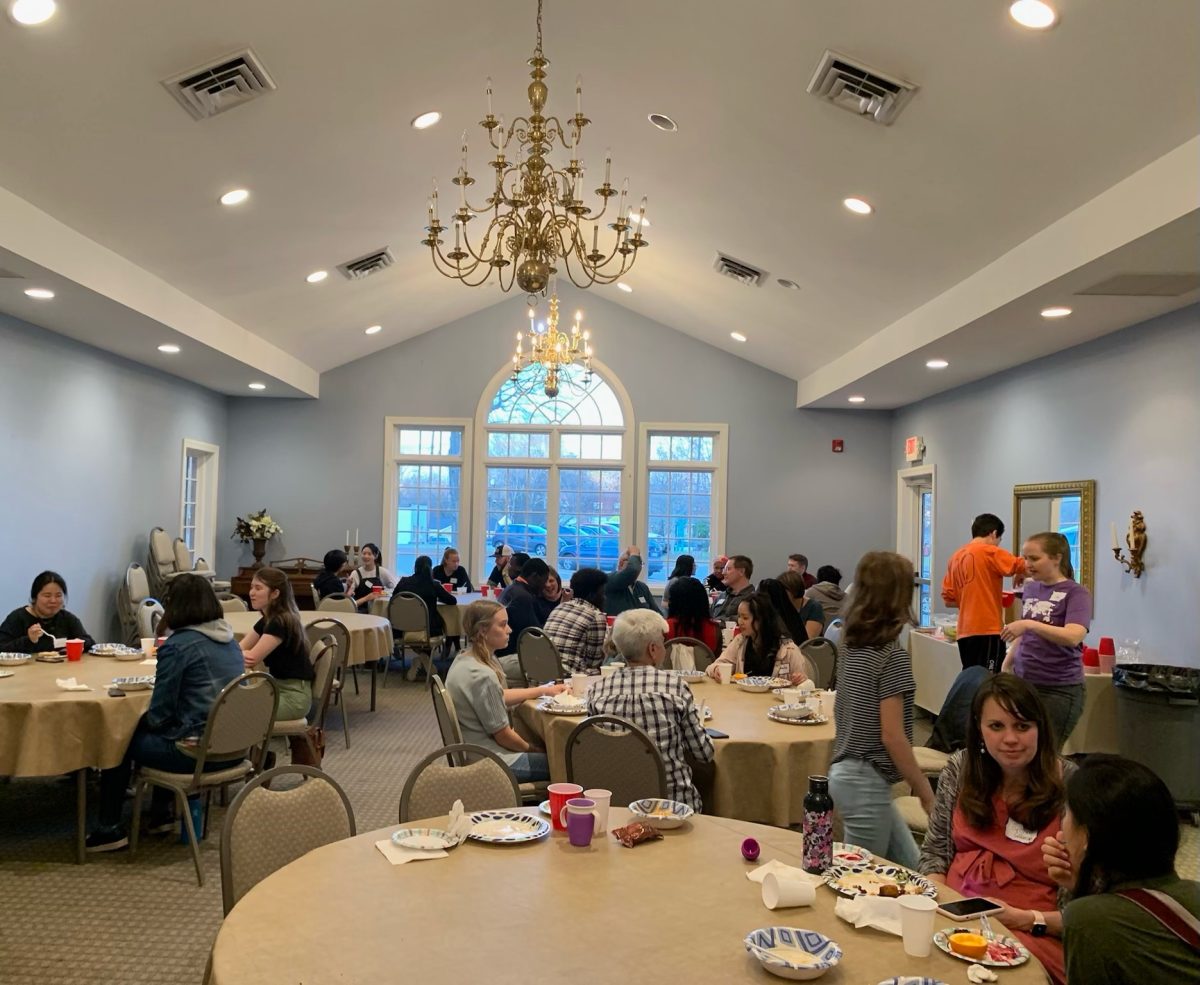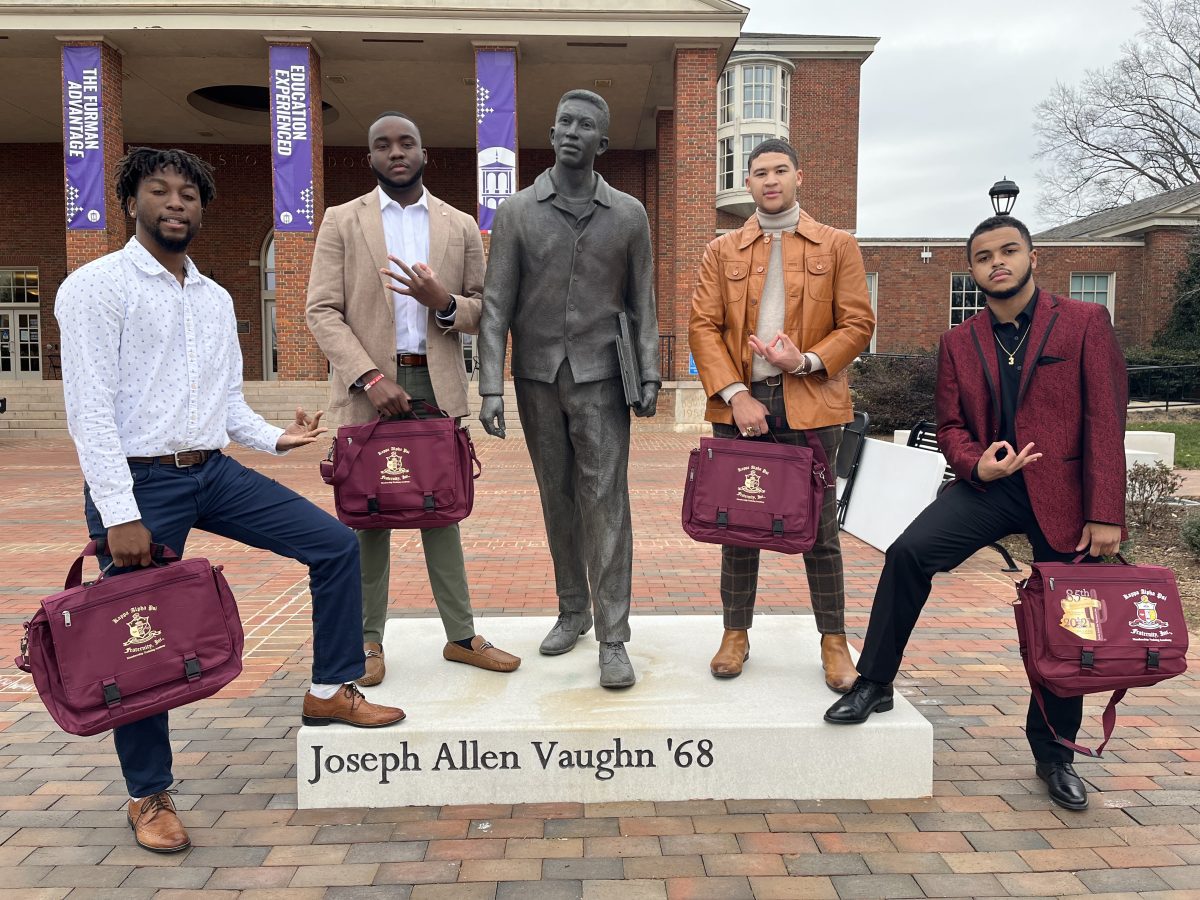When you consider the work of influential Black Furman alumni, one thing they share is the involvement in Black organizations on campus during their undergraduate studies. One of those organizations is the Furman University Gospel Ensemble (FUGE), which works to promote the Christian Gospel through the musical expression of gospel music.
Gospel music originated in the American South, with its roots in spirituals, jazz, bluegrass, ragtime, and the blues. The lyrics were historically based on Methodist Christianity, but the performance of gospel music has also been seen in Presbyterian, Baptist, and other Protestant congregations as well. The evolution of gospel music has been heavily influenced by the history of African Americans in America from the 18th century to today. Always a source of encouragement and a mode of emotional release, gospel music has captured the tears, fears, passion, and excitement of many generations of African Americans. These same sentiments are revived when traditional gospel songs are remade by modern gospel artists today. This emotional cycle, full of highs and lows, circulates among the African American community today. For this community, moments of restless peace often precede periods of tremulous civil unrest, as reflected in the lyrics of many gospel songs. The repetition and consistency of this cycle is reflected in music performed by gospel groups today.
The Furman University Gospel Ensemble (FUGE) has been using this year to reflect as a community. One way the organization has been doing this is through interviews with FUGE alumni during monthly “Culture Night” events. As the current FUGE President, I spoke with Pastor Reggie Garrett, a FUGE alumni who spoke at a previous Culture Night. Garrett shared that “a lot of what we’re going through… are just cycles of unaddressed problems that are continuing to go on.” Garrett also asserted that our revival of music from decades past is a key coping mechanism for many members of the African American community. Garrett’s message is clear: Gospel music helps with the emotional processing required to deal with racially-derived – and heavily contested – issues in our society.
The necessity for Black organizations on campus cannot be emphasized enough. They provide community and support for African American students in a time where our society still grapples with many of the challenges faced by their community. Many of these challenges are just as devastating today as they were 50 years ago.
Additionally, the racial climate faced by many African American students has led to the molding of Black pain into a poetic caricatures used for mass entertainment. This is harmful, as romanticizing Black pain dilutes true emotions and experiences. This turns Black pain into a tepid drink for mass consumption, often by those who would otherwise ignore our reality. FUGE, as an organization, recognizes this misrepresentation of Black emotions. We understand that Black pain cannot simply be captured in lines of poetry but must also be expressed through genuine emotion. Written words often fail to inspire as they lack a voice to impassion the message to the masses. Likewise, a song cannot stimulate emotional release without the emotional connection of the artist to the lyrics being sung. Gospel music addresses these discrepancies, providing passionate songs that demonstrate the relevancy and emotions of African Americans. Establishing an emotional connection between the song lyrics and the singer is integral to carrying out FUGE’s vision: uplifting the voices of those who are voiceless for the glory of God.
Culture nights are a way that FUGE shares this understanding with the Furman community, as these events aren’t limited to FUGE members, but are also available to the Black community at Furman and anyone who wishes to learn more. On April 13th, FUGE will be hosting Mr. Rudy Currence, Grammy and Dove Award winning songwriter, artist, and producer. Currence is our guest for our last Culture Night of the year and will be talking about how his time at Furman influenced his life after graduation, and what the music industry is really like. More information on the event can be found on the FUGE Instagram page, @fu_gospel!









































